
Prosecutors in Chicago are targeting a group of Northwestern University journalism students who have helped exonerate eleven wrongfully convicted prisoners, including five on death row. Cook County prosecutors have subpoenaed Northwestern and the Medill Innocence Project to hand over student grades, grading criteria, class syllabi, expense reports and email messages. Prosecutors are focusing on the students who conducted a three-year investigation into Anthony McKinney, who was convicted of fatally shooting a security guard in 1978. A judge is now reviewing McKinney’s case. [includes rush transcript]
Transcript
AMY GOODMAN: Opponents of capital punishment were given a boost this month when the New York Times reported an overlooked development. The American Law Institute, the group that provided the intellectual framework for the death penalty and remained the lone mainstream legal voice to continue supporting it, had made what one columnist called, quote, “a tectonic shift in legal theory.” In October, the ALI voted to abandon its work on the death penalty, effectively renouncing the system it helped create. The measure cited what it called, quote, “the intractable institutional and structural obstacles to ensuring a minimally adequate system for administering capital punishment.”
Well, we now turn to two cases highlighting some of the problems around the US capital punishment system.
We begin in Chicago, where prosecutors are targeting a group of Northwestern University journalism students who have helped exonerate eleven wrongfully convicted prisoners, including five on death row. Cook County prosecutors have subpoenaed Northwestern and the Medill Innocence Project to hand over student grades, grading criteria, class syllabi, expense reports and email messages. Prosecutors are focusing on the students who conducted a three-year investigation into Anthony McKinney, who was convicted of fatally shooting a security guard in 1978. A judge is now reviewing McKinney’s case. The Cook County State Attorney’s Office says it needs every pertinent piece of information about the students’ three-year investigation. But Northwestern is challenging the request, contending it’s overreaching, irrelevant to McKinney’s case, in violation of the state’s protections for journalists, and a breach of federal privacy statutes.
On Monday, a group of media outlets filed a court brief supporting the students’ defense. The outlets include the Associated Press, the New York Times and more than a dozen others. The brief says the students should be entitled to the same legal protections as working journalists.
We go now to Chicago, where we’re joined by Bryan Smith, writer-at-large for Chicago Magazine. He has a lengthy piece on the Northwestern case in the latest issue of the magazine called “The Professor and the Prosecutor.” Bryan Smith joins us by Democracy Now! video stream from Chicago.
Bryan, lay out this case, the case of Anthony McKinney, who’s been in prison for more than thirty years.
BRYAN SMITH: Right. Well, the clash of the case is between Cook County State’s Attorney Anita Alvarez, who took office about a year ago, and then, of course, Northwestern University’s Medill Innocence Project, a group of students who, under the leadership of David Protess, a journalism professor, investigate cases of potential wrongdoing.
The case of Anthony McKinney has almost been lost in all of this. You know, Anthony McKinney was convicted thirty-one years ago of murdering a security guard. Two eyewitnesses placed him at the scene, and he confessed to police detectives, but all three later claimed that they were beaten into the confessions by a detective who, it later turned out, had numerous complaints, brutality complaints, against him. So that’s how Anthony McKinney wound up in jail.
The students, in investigating the case — they spent three years investigating — uncovered — or found the two witnesses who testified against McKinney and got both of them to recant and say that they made up their statements because they were beaten. They also, and more importantly, found a man named Anthony Drake, who told the students that he was at the scene of the crime, saw who did it, and that McKinney was not there. So the students took this information first to the Center for Wrongful Convictions at Northwestern University, which is a group of student lawyers and professional lawyers, and then the students, as they have in all of the other cases that they’ve investigated, turned the information over to the Cook County State’s Attorney’s Office.
Now, in past cases, the Cook County State’s Attorney’s Office — well, the information has risen and fallen on the merits of what the students brought them. No Cook County state’s attorney has ever turned around and gone after the students. In this case, Anita Alvarez subpoenaed the students for their grades, for class evaluation materials, for unpublished interviews.
And she did this, she said, because in re-interviewing the witnesses that the students interviewed, these witnesses recanted and said some things about the students, for instance, that in one case that they tried to pay him — in Anthony Drake’s case, that they tried to pay him for an interview. A couple of the other witnesses that the State’s Attorney’s Office talked to said that some of the female students flirted with them to try and get them to give interviews. So — and then, one other witness said that the students were just doing it for grades. So, Anita Alvarez used all of those things to — she said all of those things called into question the students’ investigation and that she needed to get to the bottom of what the witnesses said.
AMY GOODMAN: And so, talk about the filing yesterday by the news organizations, Bryan Smith.
BRYAN SMITH: Well, the filing, I believe, was eighteen news organizations filed an amicus brief, including the Washington Post, New York Times, Associated Press, both Chicago papers. It was basically defending the students in this regard, that, as you pointed out in your introduction, you know, one of the operative questions here is whether the students acted as — were acting as reporters or whether they were acting as investigators, criminal investigators.
The students claim that they, you know, were acting as reporters, and they back that claim saying they published the information that they uncovered on their website and also cooperated with a reporter for the Chicago Sun-Times to produce a front-page story. Alvarez, on the other hand, says that the students were acting as criminal investigators and without an intent to publish anything. And she also said that the fact that they turned their information over to the Center for Wrongful Convictions suggests that they were actually working with the legal team in an investigative capacity. So this amicus brief is in support of the students’ position that they were acting as reporters.
AMY GOODMAN: And David Protess, who’s become famous for leading these students in investigating cases of people on death row and who have been sentenced to life in prison, like McKinney, his response to all of this? And the university?
BRYAN SMITH: Well, certainly, he says that his students are definitely acting as reporters. And of course he backs that up by saying, first of all, it’s a journalism class, it’s an investigative journalism class. He points out, too, that the information was published on the website and that there was a newspaper story produced. And, you know, in the past, Protess has also produced books based on the investigations that his students have done. So, you know, all of that together, he says, it’s clear that they were acting as reporters.
He also vehemently denies these — the allegation that one of his students paid a witness, paid Anthony Drake basically to change his story and say that, you know, Anthony McKinney was not at the crime scene. And he calls absurd these allegations that his students somehow, you know, flirted with witnesses in an effort to, I don’t know, seduce them into making statements. He says all of that’s absurd and it’s beside the point.
The question is, in his mind, is Anthony McKinney, whether or not a man who’s been in prison for thirty-one years is being — is there, you know, wrongfully, and whether — you know, the case should fall — rise and fall on the merits of the witnesses themselves. Now, if they did recant to Cook County state’s attorney’s investigators, then, you know, Anita Alvarez could use that information to impeach the witnesses. There’s no need to go after, then, certainly for things like grades. You know, again, he calls that just absurd and inappropriate.
AMY GOODMAN: Bryan Smith, we’re going to continue to follow this case, but what happens right now?
BRYAN SMITH: Well, as you pointed out, the amicus brief was filed yesterday, along with the response to the state’s attorney subpoena. Next up will be oral arguments between the two parties, and the crucial question of whether the students acted as reporters or criminal investigators will be decided.
AMY GOODMAN: Bryan Smith, I want to thank you for being with us in Chicago. Very interesting piece you did for Chicago Magazine, and we’ll link to it at democracynow.org.

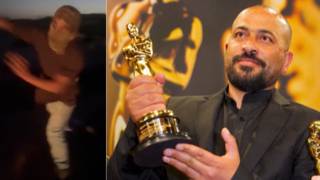
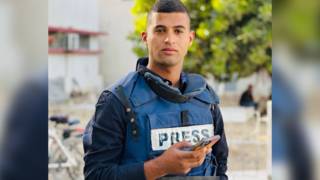
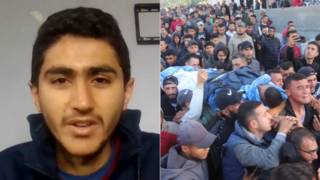
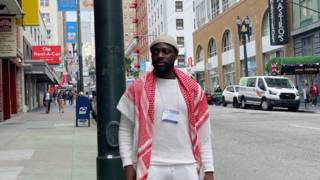





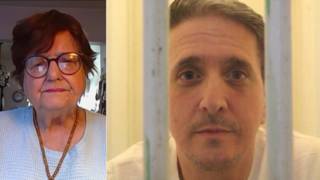
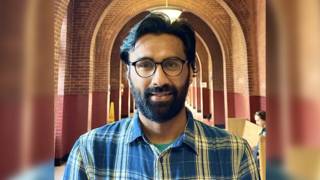
Media Options